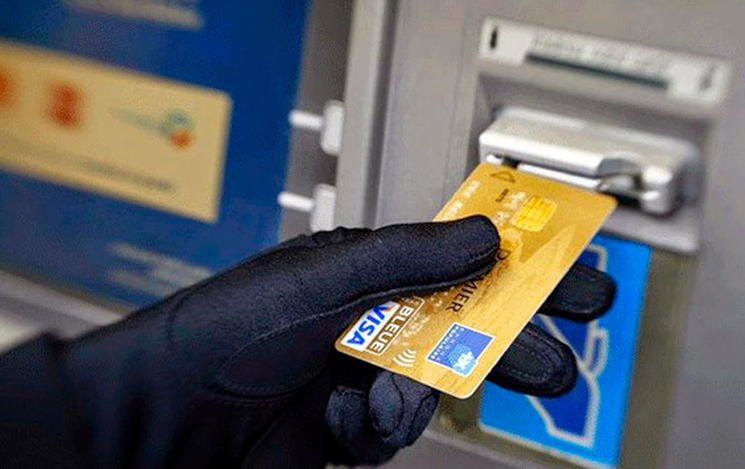Specializes in criminal defense, including white-collar crimes, cybercrime, federal cases, violent offenses, drug-related charges, as well as family, civil, medical, and immigration law. Multilingual — fluent in Russian, English, Hebrew, and Chinese, which is an advantage when working with international clients.
Legal Case: Protecting Money Transfers for TPS Beneficiaries
Category: Immigration Law, Financial Law, U.S. Banking Compliance
Attorney: Arkady Bukh
Overview of the Case
Between 2022 and 2024, as U.S. banks tightened their internal monitoring systems, many individuals with Temporary Protected Status (TPS) began facing unexpected financial challenges:
- frozen accounts due to suspicious TPS-linked transfers
- blocked remittances
- fraud alerts triggered by immigration-related transaction patterns
One high-profile case involved a TPS beneficiary in the U.S. who received lawful, recurring family support from Ukraine. Despite the transactions being legal and properly documented, the bank froze the account and halted the transfers, labeling the activity as "potentially suspicious due to TPS-related patterns."
The case attracted media attention after renowned criminal and immigration attorney Arkady Bukh took over the legal defense. His strategy focused on proving lawful intent and full transparency, ultimately restoring the client's financial access.
❝All transactions were compliant with U.S. regulations and lacked any criminal element. Discriminatory treatment of TPS holders by financial institutions has no place within the American legal system.❞
— Arkady Bukh
Key Legal and Compliance Issues
1. Financial Compliance for Temporary Protected Status
Many TPS holders face over-monitoring by banks due to perceived financial risk, even when they engage in standard remittance activity.
2. Common Financial Risks for TPS Beneficiaries:
- Frozen accounts from immigration-related transfers
- Automated fraud alerts on immigrant accounts
- Involuntary restrictions due to TPS designation
- Lost access to critical funds during compliance reviews
3. Banking Restrictions Based on Immigration Status
Banks often apply automated risk flags without understanding the legal framework surrounding TPS. This leads to unwarranted account freezes and legal confusion, putting TPS holders in financially vulnerable positions.
Case Resolution and Outcome
In this case, the client regularly received funds from relatives in Ukraine to support basic needs. Due to aggressive compliance algorithms, the bank classified the remittances as high-risk, froze the account, and issued a fraud notice.
Attorney Actions:
- Filed a formal complaint with FinCEN (Financial Crimes Enforcement Network)
- Negotiated with bank legal departments (including JPMorgan, Wells Fargo, Bank of America)
- Obtained a written declaration from the bank acknowledging wrongful account freezing
- Recovered full financial access for the client
Judicial Logic Cited During Proceedings
During the legal hearing, Bukh drew comparisons to a previously controversial federal case involving:
Oleg Nikolaenko ("Spam King") — a defendant in a federal spam marketing case.
Nikolaenko was sentenced only to time served, signaling that U.S. courts differentiate between technical violations and criminal intent.
Similarly, this TPS-related case illustrated that the system wrongfully assumed criminal intent based solely on immigration status.
Services Provided in the Case
- Transaction analysis to confirm full legal compliance
- Preparation of documentation supporting remittance legitimacy
- Legal representation in direct negotiations with financial institutions
- Defense against fraud alerts and suspicious transaction blocks
- Restoring full access to frozen financial accounts
- Educating the client on TPS remittance best practices
Best Practices for TPS Money Transfers
Use official remittance services with built-in KYC (Know Your Customer) compliance
Always retain documentation for every transaction
Avoid splitting large transfers into smaller amounts, which may trigger alerts
Inform your bank proactively of your TPS designation
Consult a lawyer if transferring amounts over $2,000
Frequently Asked Questions
Question
Can U.S. banks freeze accounts based on TPS status?
Відповідь
Only if there’s suspected financial wrongdoing — TPS alone is not a legal reason for freezing accounts.
Question
How can I avoid account restrictions from overseas remittances?
Answer
Use regulated services, keep documentation, and work with a legal advisor experienced in TPS-related transaction monitoring.
Question
What should I do if my account is already frozen?
Answer
Immediately seek legal help from an attorney who specializes in immigration and financial compliance, such as Arkady Bukh.
Question
Will a blocked account impact my immigration status?
Answer
Not directly. But account restrictions can complicate your TPS renewal or USCIS processes involving financial documentation.
This case clearly demonstrates how legal intervention can protect immigrants from automated overreach by the banking system. Attorney Arkady Bukh leveraged his deep experience in immigration and financial law to:
Reinstate banking rights for the client
Prove the legitimacy of TPS-compliant money transfers
Ensure TPS status was not used as a basis for discrimination
For all TPS holders and their families, this case is a model of how to maintain access to financial systems safely and legally. If you’re experiencing account issues tied to immigration or remittances, legal counsel is essential.































